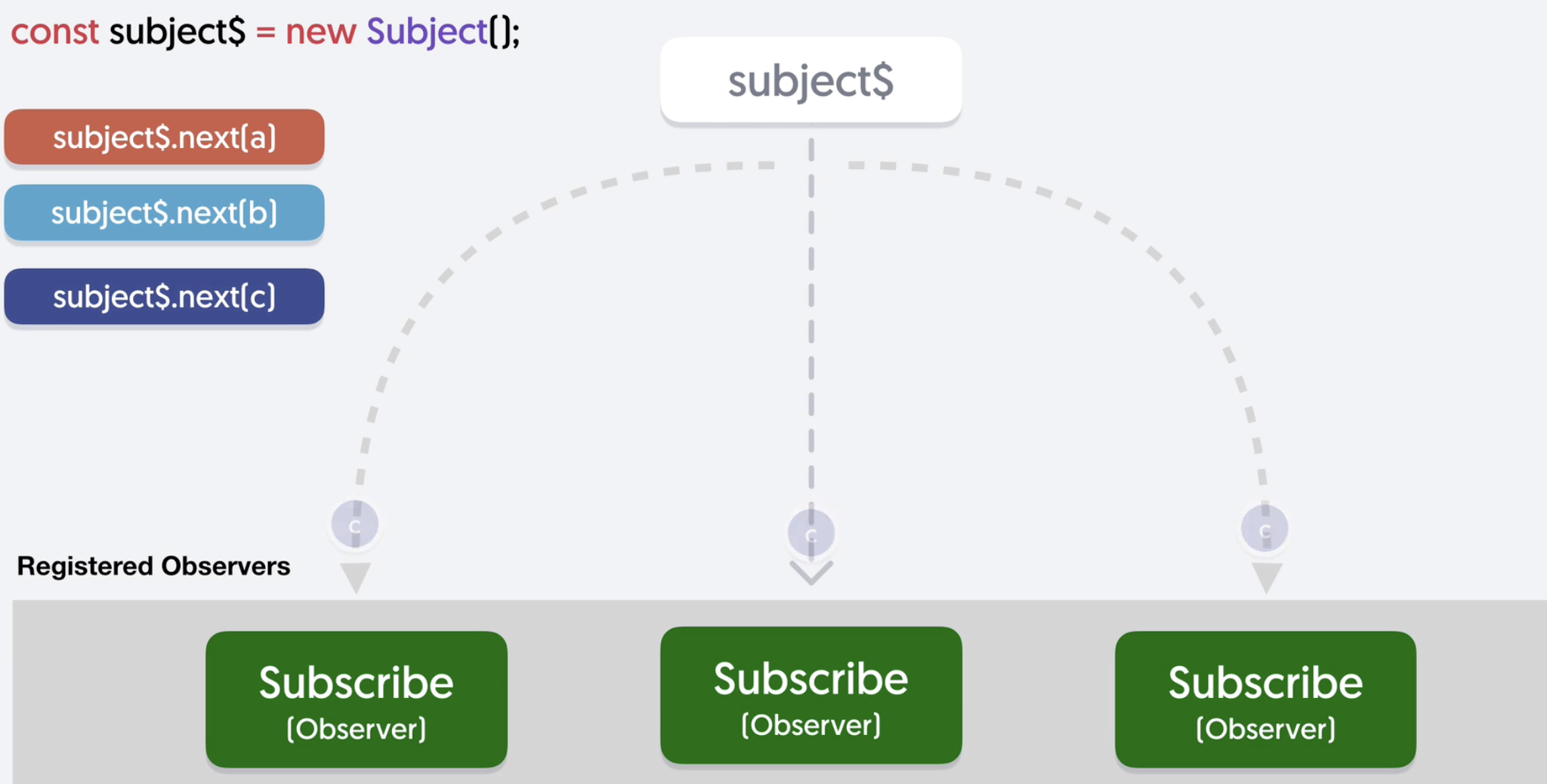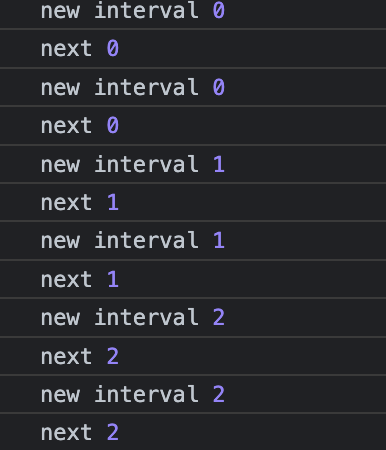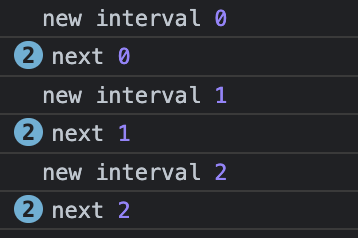[RxJS] Share data among multiple subscribers with Subjects

Subject as resource can be shared amount multi observers.
Normal Observable pattern is Cold observable, each subscription will get its own resource:
import { interval, Subject } from "rxjs";
import { tap } from "rxjs/operators";
const observer = {
next: (val) => console.log("next", val),
error: (err) => console.error("error", err),
complete: () => console.log("complete"),
};
const subject = new Subject();
const interval$ = interval(2000).pipe(
tap((val) => console.log("new interval", val))
);
// Each subscription is getting its own interval
// rather than one interval being shared between both
interval$.subscribe(observer);
interval$.subscribe(observer);
When we swtich to Subject:
import { interval, Subject } from "rxjs";
import { tap } from "rxjs/operators";
const observer = {
next: (val) => console.log("next", val),
error: (err) => console.error("error", err),
complete: () => console.log("complete"),
};
const subject = new Subject();
const interval$ = interval(2000).pipe(
tap((val) => console.log("new interval", val))
);
/*
// Each subscription is getting its own interval
// rather than one interval being shared between both
interval$.subscribe(observer);
interval$.subscribe(observer);
*/
const subscription = subject.subscribe(observer);
const subscriptionTwo = subject.subscribe(observer);
// Interval only got log out once
// And next value log out twice by two subscirptions
// Subject is multicasting, sharing the observable
// It is useful when you have expanse resourse such as
// Web stock socket$.subscribe(subject)
interval$.subscribe(subject);
Well, there is easier way to achieve the same effect by using share():
import { interval } from "rxjs";
import { share, shareReplay, tap } from "rxjs/operators";
const observer = {
next: (val) => console.log("next", val),
error: (err) => console.error("error", err),
complete: () => console.log("complete"),
};
const interval$ = interval(2000).pipe(
tap((val) => console.log("new interval", val)),
share()
);
interval$.subscribe(observer);
interval$.subscribe(observer);



 浙公网安备 33010602011771号
浙公网安备 33010602011771号